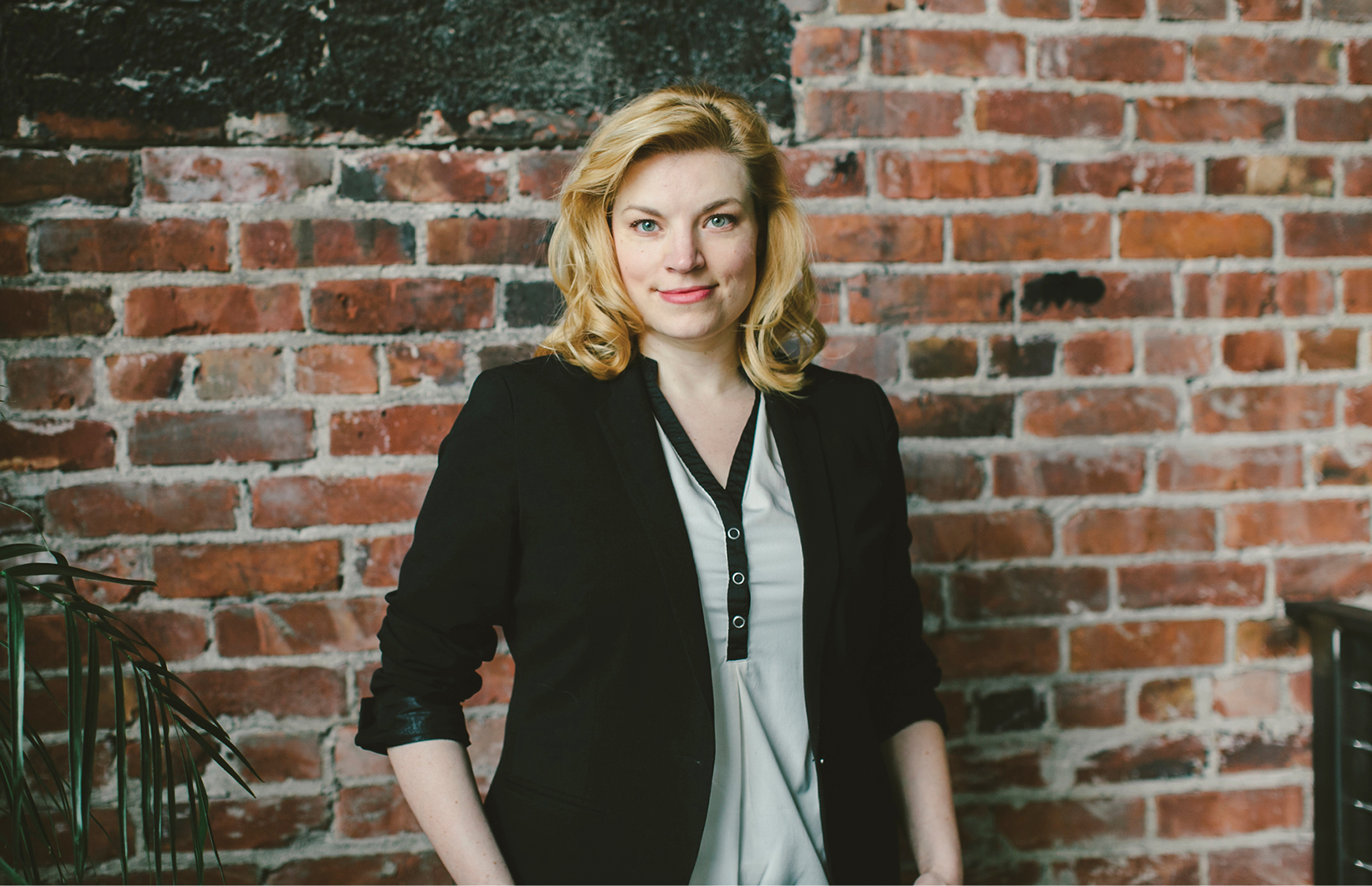As a then-twenty-something majoring in literature and philosophy, Sarah Bird, 35, was at a loss as to where her future was headed career-wise. In the end though, fate led her to start out in the law field before she ultimately joined in-bound marketing software start-up Moz. The common thread? Problem solving. Both lawyers and entrepreneurs require communicative, creative and conflict-solving skills. Not to mention a determination to get things done. Sarah has no shortage of these skills—and more!
Having been involved with Moz from the start, Sarah helped build the company from scratch. And now as CEO, she continues to further the company’s vision from her chair on the Board of Directors, sharing ideas and helping to visualize and guide the company’s future. Her position also gives her the opportunity to indulge her other passion: helping others.
Sarah plans to continue to use her optimism to support and inspire the Moz team, as well as spend time with her own support system—her family. She is constantly working to expand her horizons daily by blogging and traveling, whether that is to a new spot in Seattle or a far-flung locale. Sarah has, in the end, found the ideal environment in which to lead and empower others, while simultaneously empowering her own life!
Her Starting Point
Many people find the transition between college and “real life” a bit daunting. Can you tell us about your journey between the two? What was your first job post-college?
I had no notion of what I wanted to do with my life in my 20s. I graduated with a degree in literature and philosophy. When I was accepted to law school, I had no idea if I wanted to practice law or what type of law I wanted to practice. I filled the gap months between college and law school with part-time work at a local law office and a dental office. There was no formal training and very little guidance. I love problem solving, so this was heaven. My mother taught me to never wait to be told what to do. Take the initiative and solve problems. Then people will pay you for solving their problems.
That was basically my entire career path before and after law school—find problems and solve them. Then people will pay you. I’m addicted to problem solving, which is a good thing because there are always going to be more problems.
Before we really dive in, tell us more about your company. What does Moz have to offer?
Moz makes software for online marketers to help measure and improve search, social, web mentions and content. We have over 21,000 passionate customers from all over the world. We also host the world’s largest community of online marketers. More than two million marketers visit our website each month.
What do you love most about working at Moz? What is the company culture like?
We have well-defined corporate values called TAGFEE: Transparent, Authentic, Generous, Fun, Exceptional and Empathetic. We value hard work, but also flexibility.
We also don’t like to take ourselves seriously. We’re optimistic and generous. Mozzers help each other, and the community. They believe that they can change the world. For example, together we donated over $105,000 to non-profits last year. That’s inspiring.
You have an extensive background in law! How do you connect your role working with computer software with your background in law?
I didn’t realize it when I was working as an attorney, but law was good practice for entrepreneurship. You have to learn quickly. You have to be able to spot obstacles and opportunities, be creative, build judgment through experience, seek help from experts and have the courage to advocate for what you believe is right, even if it’s likely that you’ll lose. The difference is that, instead of having to convince a client or a judge to follow you, in business you’re convincing your team that your vision for the future is not only possible, but worth taking risks for.
Her Big Break
Tell us about your daily tasks and responsibilities as CEO for Moz.
The CEO’s job is to set the vision and communicate it to all, recruit and develop the best team possible and make sure there is cash in the bank. I try to make sure that my daily activities fall into one of these three buckets.
I spend the majority of my time exchanging information with and providing guidance to the team. This is vision-setting work. It’s recursive in that I’m looking for feedback and big ideas. I’m also communicating the vision back to the team so they know it by heart. I make sure we’re holding each other accountable. Most of this communication is in email and meetings. So many emails!
I also give a lot of formal and informal presentations to help summarize and evangelize the vision to stakeholders. This is an important part of working with a board—building relationships with people who may be able to help you in the future and recruiting great talent.
Another important component of my day is to pay it forward. I’ve benefited from a generous startup ecosystem and mentorship from many talented people. It’s important to me to give back and help others. In fact, one of the things that makes me feel the most stress in my role is balancing my desire to help others with time to focus on Moz and my family. There are many ways to contribute and it pains me to say ‘no’ when I might be of help.
What is the most rewarding part of your job? The most challenging? How do you keep yourself from getting burnt out?
The most rewarding part of this job is growing and inspiring a diverse group of professionals. It’s enormously satisfying to watch people meet their potential, to accomplish goals they didn’t imagine themselves capable of. Conversely, it’s very hard to ask people you care about to leave the company when it’s no longer a good fit.
Managing my time and energy is really challenging, too. Balancing my responsibilities to my team with my desire to research industry trends and help other entrepreneurs is a constant juggle. And, yeah, there’s family and friendships I want to nurture. Oh, and time for yourself. That’s important, too.
If we had the chance to peek at your schedule, what would an average day look like?
Up at 7:00 a.m. A little family time before I walk to work at 8:30 a.m. Lots of emails, meetings and cups of coffee throughout the day. We frequently will have little treats, parties or lunch-and-learns. Always a working lunch. A couple of nights a week I attend a networking/community event. Usually I walk home at 6:30 p.m. for family time. I play with my kiddo while my hubby makes dinner. I’m in charge of bedtime. Then I pop back on email and do any projects that take creativity and chunks of time. I have a hard time doing creative work during the day. Finally, I’m off to bed around 11:30 p.m. I usually read a really trashy book to relax my brain so that I can sleep.
In our fast-paced world, it can be difficult to stay ahead of the game. How is Moz different? What sets it apart from other companies like it?
I don’t think there are other companies like Moz. Our TAGFEE values make this a special place to work and lead us to make different decisions than other companies. First, we have the best team in the world. They are smart, dedicated and very TAGFEE. Second, the Moz community is amazing. They are very passionate about online marketing and give us a ton of great ideas and feedback. We don’t have a hard time getting ideas or feedback from customers—We have a hard time synthesizing it.
Her Perspective
As a mom, what advice would you give to those trying to make it in the career world with kids in tow?
Stop feeling guilty. Don’t compare yourself to other people. There is no one right way to be a mom or a business leader. I choose to focus on quality of time, not quantity of time. I try to really listen and pay attention when we’re together. I want to be present for them.
When I first had my son, Jack, I felt guilty most of the time. If I was at work, then I felt guilty that I wasn’t with Jack. If I was with Jack, then I felt guilty that I wasn’t working. Finally, I realized that my dad worked a lot when I was growing up and I never felt unloved by him. My dad and I have a close relationship. After that insight, it was easy to let go of the guilt and to just enjoy the love I have for my family.
What skills are essential to working as a CEO and lawyer? Do you think having an industry niche is important?
Be courageous. Learn fast. Be humble. Listen carefully and ask questions. Step outside of yourself to see a problem from all sides. Communicate your vision and expectations clearly and often. Speak up.
What are some books, links or resources that you would recommend for someone interested in getting started in computer software and business?
The Four Steps to the Epiphany by Steve Blank is my favorite book about creating a software startup. He teaches a methodology that is customer focused and practical.
For leadership in general, I highly recommend the audio version of Fred Kofman’s Conscious Business. It feels like you’re having a conversation with Javier Bardem about being a values-driven leader.
And finally, what do you wake up looking forward to? What’s next for your career?
I wake up looking forward to my first, and second, cup of coffee.
The next step in my career is helping TAGFEE thrive while the business gets larger and more complex, and we get ready to go public.
You May Also Like
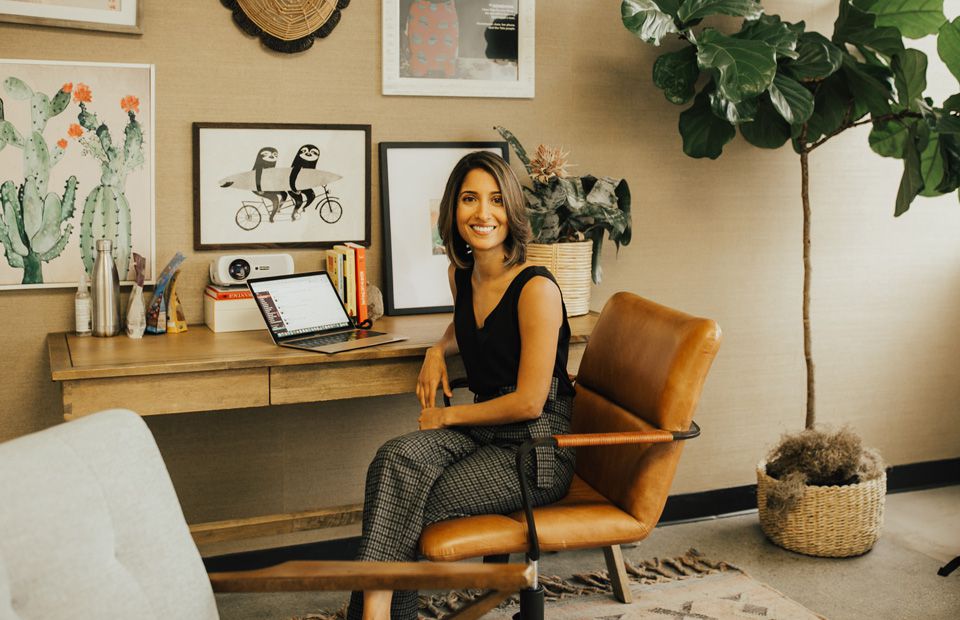
Technology
A Tech Founder on Why Being an Outsider Is a Strength
"I actually think most successful founders are rebels, of a sort. We’re trying to do new things and take on entrenched systems or ways of thinking. What makes me and our company different is that we’re outsiders."
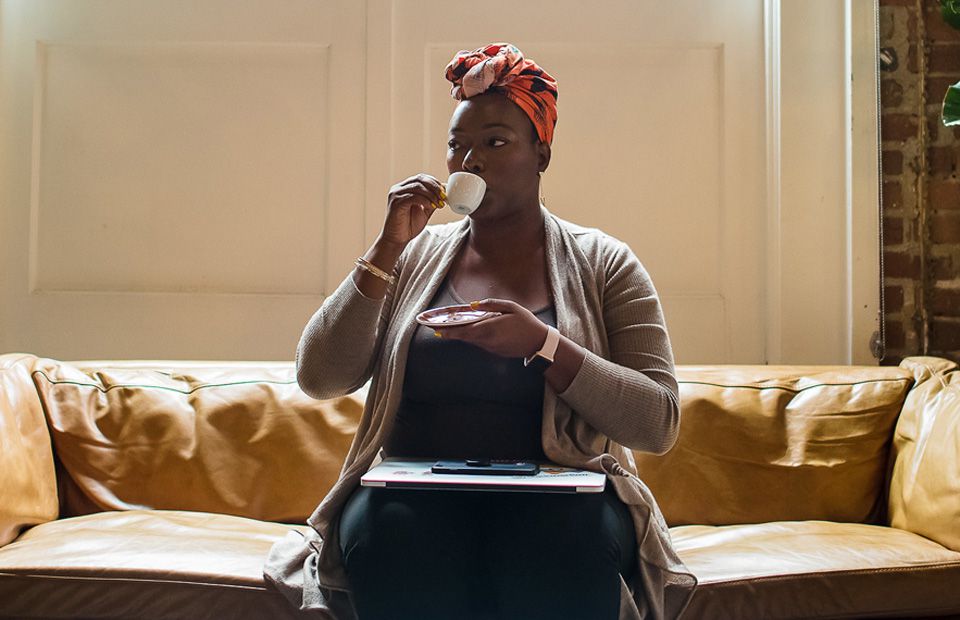
Technology
Omoju Miller—Tech Veteran, Leader, and Volunteer Advisor to the Obama Administration—on The Crucial Role of Creativity in the Tech Industry
"If you are in an environment where you feel marginalized, leave. Don’t try to change it. Go and look for a place that sees you and lets you be you."
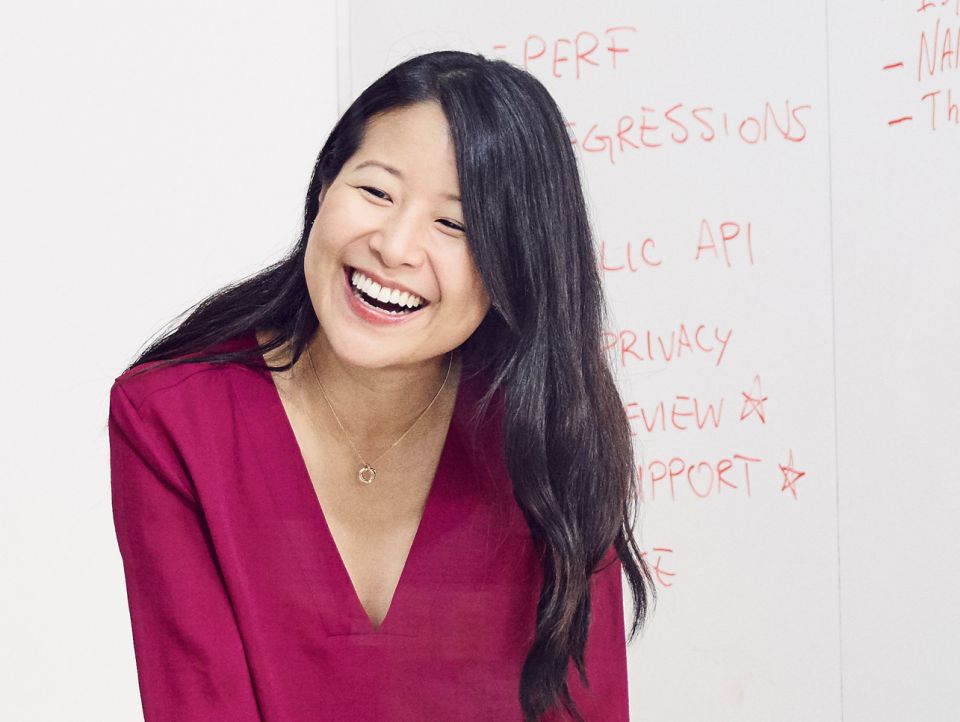
Technology
Sharing Stories as a Software Engineer
We sat down with Apple software engineer Emilie to learn about her day-to-day working at Apple along with what it takes to run the perfect meeting and her favorite ways to unwind.
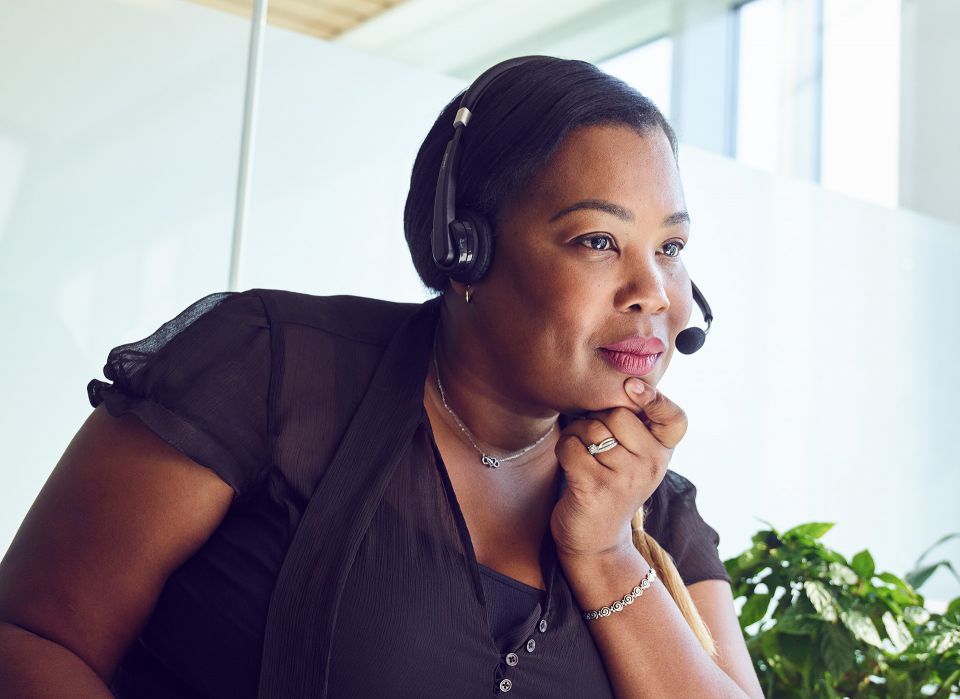
Technology
Creating Impact with Apple
We sat down with Apple's Senior Developer Partner Relations Advisor, Cris, to learn about what it takes to create a lasting impact within a large company. She shares a typical day in the life, her favorite book recommendations, and her top four tips to running a meeting.
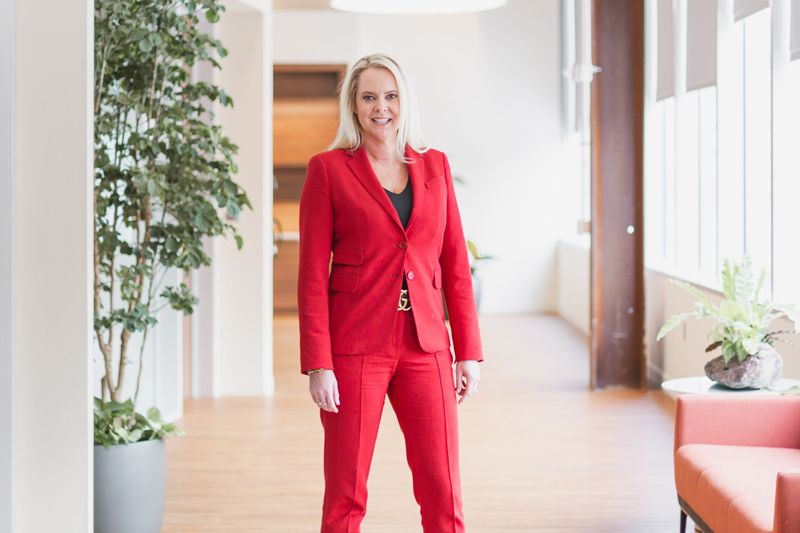
Technology
Salesforce’s Senior Vice President of Sales on Unconscious Bias, Failure, and Innovative Leadership
"Do not be afraid to fail, just bring your best self to the table."
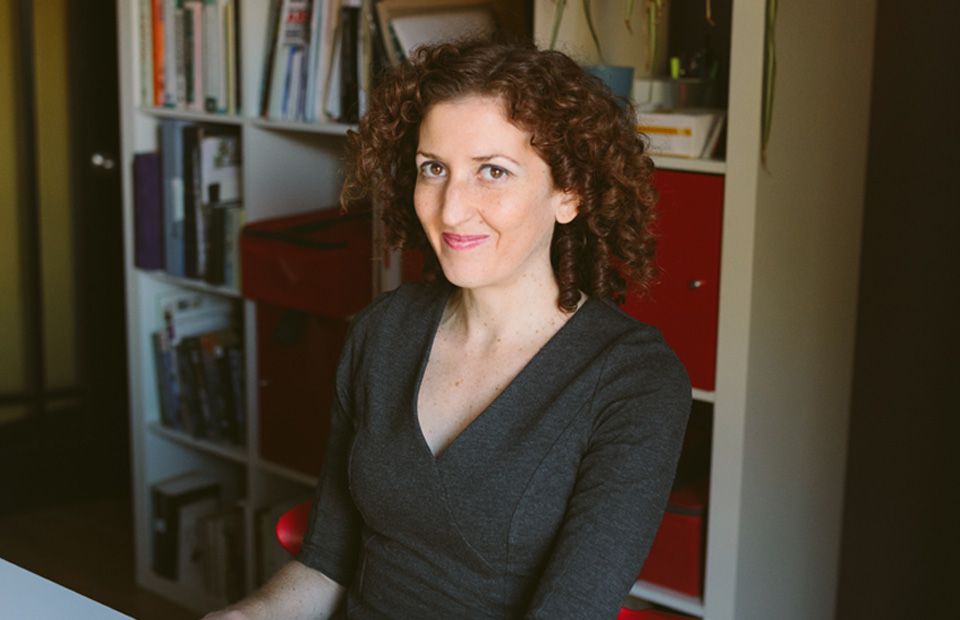
Technology
A Director of Engineering on Tech + Leadership
"I don’t believe in 'having it all'. If you spend more time on one thing, then you spend less time on another thing. All we can do is make choices on how to spend our time."
Get the Best Career Advice Delivered To Your Inbox
Join our newsletter to stay in the loop.
